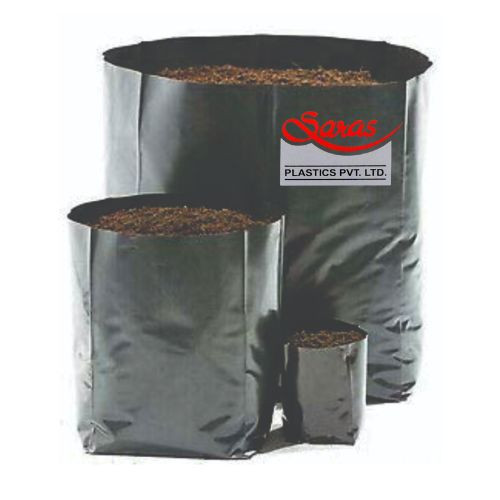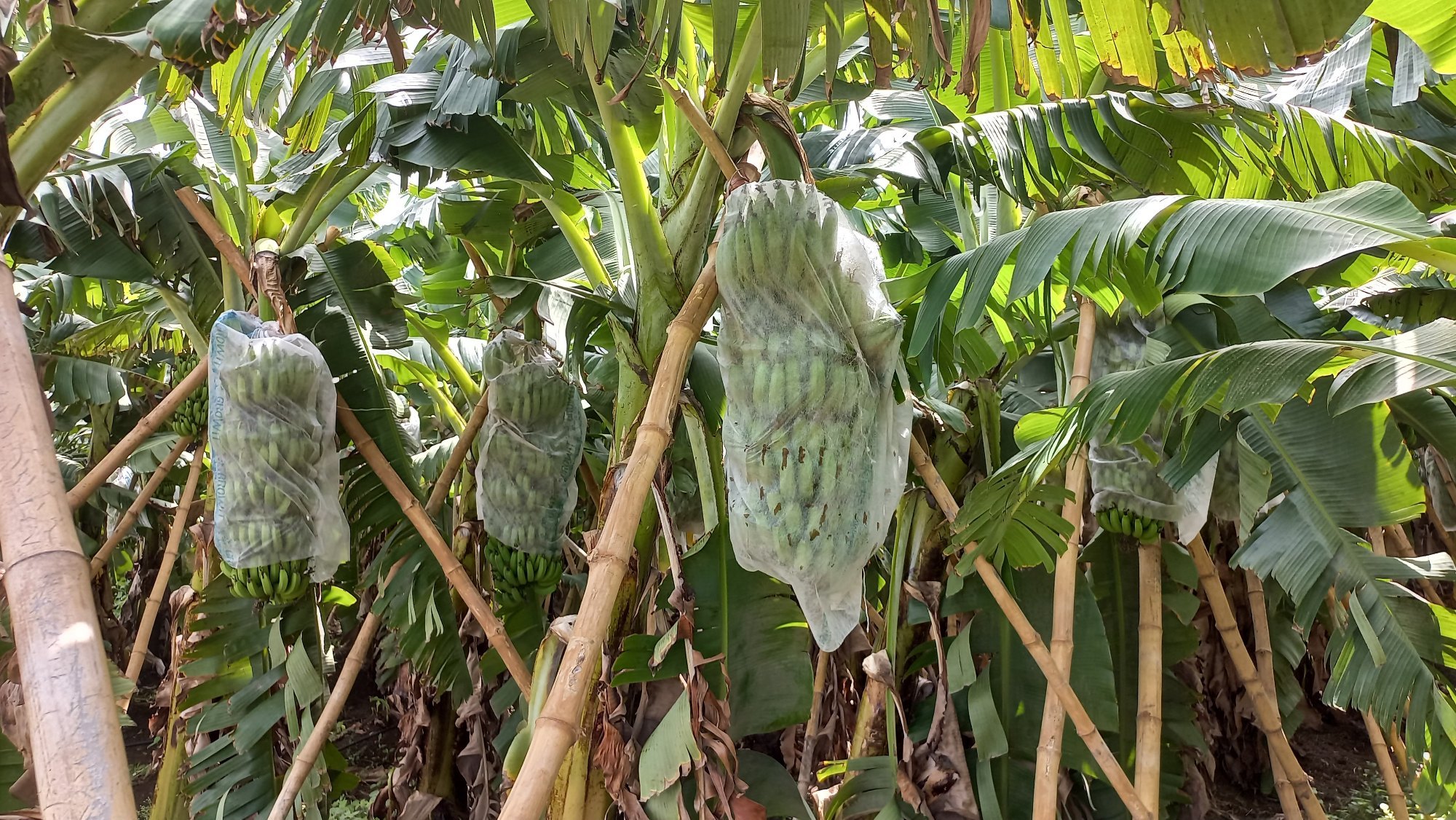Unleashing the Power of Water-Soluble Fertilizers: Boost Your Crop's Growth and Yield
March 22, 2024Are you looking to take your crop's growth and yield to the next level? Look no further than water-soluble fertilizers! These powerful nutrients are revolutionizing the agricultural industry, delivering precisely what your plants need for optimal growth and productivity. Click Here Best Best Quality Nano Technology Fertilizers
Water-soluble fertilizers are designed to dissolve quickly in water, allowing for easy absorption by your crops' roots. This efficient delivery system ensures that your plants receive the essential nutrients they need, exactly when they need them. Say goodbye to wastage and hello to maximum nutrient uptake Click Here Best Quality Imported Fertilizer
Not only do water-soluble fertilizers deliver nutrients efficiently, but they also offer superior control over nutrient ratios. You have the flexibility to tailor the fertilizer blend to match the specific requirements of your crops, ensuring they receive the perfect balance of nutrients for thriving growth.
With water-soluble fertilizers, you can expect faster and more uniform plant growth, increased crop yields, enhanced nutrient uptake, and improved overall crop quality. So why wait? Unleash the power of water-soluble fertilizers and watch your crop's potential flourish!
Advantages of using water-soluble fertilizers
Water-soluble fertilizers offer several advantages that make them highly beneficial for crop growth and yield. Firstly, their quick dissolvability in water allows for immediate nutrient availability to the plants. This means that the nutrients are readily absorbed by the roots, providing instant nourishment to the crops. Additionally, the water-soluble nature of these fertilizers ensures that there is minimal nutrient loss through leaching, making them highly efficient. Moreover, water-soluble fertilizers provide superior control over nutrient ratios, allowing farmers to customize the fertilizer blend according to the specific needs of their crops. This flexibility ensures that the plants receive the optimal balance of nutrients required for their growth and development. By tailoring the nutrient composition, farmers can address specific deficiencies or excesses, maximizing the crop's potential.
Another advantage of water-soluble fertilizers is their compatibility with various irrigation systems, including drip irrigation and sprinklers. These fertilizers can be easily applied through irrigation systems, ensuring even distribution of nutrients to the entire crop, resulting in uniform growth and development. Overall, the advantages of using water-soluble fertilizers include immediate nutrient availability, minimal nutrient loss, superior control over nutrient ratios, and compatibility with different irrigation systems. These benefits make water-soluble fertilizers a game-changer in the agricultural industry, enabling farmers to achieve higher crop yields and improved plant health.
How water-soluble fertilizers work
Water-soluble fertilizers work by dissolving quickly in water, allowing for easy absorption by the roots of plants. This rapid dissolution is due to the formulation of the fertilizers, which are designed to break down easily upon contact with water. Once the water-soluble fertilizer is dissolved in water, it forms a nutrient-rich solution that can be easily absorbed by the plant's roots. The nutrients in the solution are taken up by the root hairs through a process called osmosis. Osmosis is the movement of water and dissolved nutrients from an area of higher concentration (in the fertilizer solution) to an area of lower concentration (in the plant roots). This movement is driven by the plant's need for water and nutrients to support its growth and metabolic processes. As the plant takes up the nutrient-rich solution, the nutrients are transported to different parts of the plant through the xylem and phloem. The xylem carries water and nutrients from the roots to the leaves, while the phloem transports sugars and other organic compounds from the leaves to the rest of the plant. This transport system ensures that the nutrients are distributed evenly throughout the plant, promoting uniform growth and development. In summary, water-soluble fertilizers work by dissolving in water, forming a nutrient-rich solution that is easily absorbed by the plant's roots. The dissolved nutrients are then transported to different parts of the plant through the xylem and phloem, ensuring optimal nutrient distribution for healthy growth.
Types of water-soluble fertilizers
Water-soluble fertilizers come in various types, each designed to meet specific plant nutrient requirements. The three main types of water-soluble fertilizers are Nitrogen-based fertilizers: These fertilizers are primarily composed of nitrogen, an essential nutrient required for plant growth and development. Nitrogen is responsible for promoting leaf and stem growth, as well as enhancing the plant's ability to photosynthesize. Examples of nitrogen-based water-soluble fertilizers include ammonium nitrate, calcium nitrate, and urea. Phosphorous-based fertilizers: Phosphorus is another vital nutrient required by plants for energy transfer and root development. Water-soluble fertilizers rich in phosphorous are beneficial for promoting strong root systems, enhancing flowering and fruiting, and improving overall plant vigor. Examples of phosphorous-based water-soluble fertilizers include monoammonium phosphate (MAP) and diammonium phosphate (DAP). Potassium-based fertilizers: Potassium is essential for various plant functions, including water regulation, enzyme activation, and disease resistance. Water-soluble fertilizers with potassium content are crucial for promoting fruit development, improving crop quality, and enhancing plant resilience to stress. Examples of potassium-based water-soluble fertilizers include potassium nitrate and potassium sulfate.
It is important to note that many water-soluble fertilizers contain a combination of these three essential nutrients, often referred to as NPK fertilizers. These NPK formulations provide a balanced blend of nitrogen, phosphorus, and potassium, ensuring comprehensive plant nutrition. Farmers should consider the specific nutrient requirements of their crops and soil conditions when selecting the appropriate water-soluble fertilizer type. Conducting a soil analysis and understanding the crop's growth stage are crucial for determining the right nutrient formulation to maximize crop productivity.
Best practices for using water-soluble fertilizers
To harness the full potential of water-soluble fertilizers, it is important to follow best practices for their application. Here are some key guidelines to ensure effective and efficient use of these fertilizers:
Dilution ratio:
Follow the manufacturer's recommended dilution ratio when preparing the fertilizer solution. Overdosing can lead to nutrient imbalances and potential crop damage, while underdosing may result in nutrient deficiencies. It is crucial to strike the right balance to support optimal plant growth.
Timing and frequency:
Apply water-soluble fertilizers at the appropriate timing and frequency based on the crop's growth stage and nutrient requirements. Different crops have varying nutrient demands during different growth phases. Adjust the application schedule accordingly to provide the necessary nutrients at the right time.
Irrigation method:
Utilize irrigation systems compatible with water-soluble fertilizers, such as drip irrigation or sprinklers. These systems ensure even distribution of the fertilizer solution, avoiding nutrient concentration variations in the soil. Proper irrigation management is essential to prevent nutrient leaching and achieve uniform crop growth.
Application technique:
Apply the fertilizer solution evenly across the crop's root zone to ensure uniform nutrient uptake. Uneven distribution can lead to nutrient deficiencies or excesses in certain areas, affecting overall plant health. Proper calibration of equipment and application techniques, such as foliar spraying or fertigation, can help achieve uniform coverage.
Soil testing and monitoring:
Regularly conduct soil testing to assess nutrient levels and pH. This information will guide the selection and application of water-soluble fertilizers, preventing nutrient imbalances. Continuous monitoring of plant health and growth can also provide valuable insights into the effectiveness of the fertilizer program.
By following these best practices, farmers can optimize the use of water-soluble fertilizers and maximize their crop's growth potential. Effective fertilizer management is key to achieving higher yields, improved crop quality, and sustainable agriculture practices.
Water-soluble fertilizers vs. traditional fertilizers
Water-soluble fertilizers offer significant advantages over traditional fertilizers, such as granular or slow-release formulations.
Here are some key differences between the two:
Nutrient availability:
Water-soluble fertilizers provide immediate nutrient availability, as they dissolve quickly and can be directly absorbed by the plants. In contrast, traditional fertilizers require time for decomposition and microbial activity to release the nutrients into a form accessible to the plants. This delay in nutrient availability can hinder plant growth during critical growth stages.
Precision and control:
Water-soluble fertilizers allow precise control over nutrient ratios, enabling farmers to tailor the fertilizer blend to meet specific crop requirements. Traditional fertilizers often have fixed nutrient ratios, limiting customization. This flexibility in nutrient composition ensures optimal plant nutrition and maximizes growth potential.
Uniformity:
Water-soluble fertilizers, when applied correctly, provide a uniform distribution of nutrients throughout the soil and crop root zone. Traditional fertilizers, especially granular forms, may have uneven nutrient distribution, resulting in localized nutrient deficiencies or excesses. Uneven nutrient availability can lead to inconsistent plant growth and reduced yields.
Nutrient loss:
Water-soluble fertilizers have minimal nutrient loss through leaching, as they are quickly absorbed by the plants or retained in the root zone. In contrast, traditional fertilizers are more prone to leaching, especially during heavy rainfall or excessive irrigation. Nutrient leaching not only wastes resources but also contributes to environmental pollution.
Convenience and efficiency:
Water-soluble fertilizers are easy to handle and apply, especially when using irrigation systems. They dissolve readily in water and can be applied directly to the root zone, reducing labor and application time. Traditional fertilizers often require manual spreading or incorporation into the soil, which can be time-consuming and labor-intensive.
While traditional fertilizers still have their place in agriculture, the advantages of water-soluble fertilizers make them a superior choice for maximizing crop growth, yield, and nutrient efficiency. By embracing water-soluble fertilizers, farmers can achieve better control over plant nutrition, minimize nutrient losses, and promote sustainable agricultural practices.
Case studies:
Success stories of using water-soluble fertilizers
Water-soluble fertilizers have been proven to enhance crop growth and yield in various agricultural settings. Let's explore a few success stories showcasing the effectiveness of these fertilizers:
Case Study 1:
Tomato Farming in California
A tomato farmer in California switched to water-soluble fertilizers for their crop, aiming to improve fruit quality and increase marketable yield. By customizing the nutrient blend according to the crop's requirements, the farmer achieved a significant improvement in overall plant health and vigor. The use of water-soluble fertilizers led to uniform fruit size, enhanced color development, and increased market value. Additionally, the farmer observed a reduction in nutrient leaching, resulting in a more sustainable and environmentally friendly farming practice.
Case Study 2: Hydroponic Lettuce Production in Canada
A hydroponic lettuce producer in Canada implemented water-soluble fertilizers to optimize nutrient delivery in their controlled environment. The use of water-soluble fertilizers allowed precise control over nutrient ratios, resulting in rapid and uniform lettuce growth. The producer observed increased crop yields and improved leaf quality, leading to higher profitability. The efficient nutrient uptake of water-soluble fertilizers in hydroponic systems contributed to reduced nutrient waste and enhanced resource utilization.
These case studies demonstrate the positive impact of water-soluble fertilizers on crop growth, quality, and profitability. The ability to customize nutrient blends, reduce nutrient losses, and achieve uniform growth makes water-soluble fertilizers a valuable tool for farmers across various agricultural sectors.
Common misconceptions about water-soluble fertilizers
Despite their numerous benefits, water-soluble fertilizers are sometimes subject to misconceptions. Let's address some common misconceptions and provide clarity:
Misconception:
Water-soluble fertilizers are expensive.
Reality:
While the upfront cost of water-soluble fertilizers may be higher compared to traditional fertilizers, their efficiency and nutrient availability often justify the investment. Water-soluble fertilizers provide precise control over nutrient ratios, reducing wastage and enhancing nutrient uptake. This efficiency can lead to overall cost savings and improved crop performance.
Misconception:
Water-soluble fertilizers are harmful to the environment.
Reality:
When used correctly and in accordance with recommended guidelines, water-soluble fertilizers are not inherently harmful to the environment. Proper application techniques, such as avoiding excessive application rates and preventing runoff, can minimize the risk of nutrient pollution. Additionally, the efficient nutrient uptake of water-soluble fertilizers reduces nutrient leaching, contributing to environmental sustainability.
Misconception:
Water-soluble fertilizers are complicated to use.
Reality: While there may be a learning curve associated with using water-soluble fertilizers, they are not significantly more complicated than traditional fertilizers. Following recommended application rates, dilution ratios, and best practices ensures effective use. Many manufacturers provide clear instructions and guidelines to simplify the application process. With proper knowledge and practice, farmers can easily incorporate water-soluble fertilizers into their existing fertilization programs.
It is important to dispel these misconceptions and recognize the value of water-soluble fertilizers in modern agriculture. By understanding their benefits, addressing concerns, and adopting proper application practices, farmers can unlock the full potential of these fertilizers for sustainable crop growth.
Environmental considerations and sustainability of water-soluble fertilizers
As agriculture aims for more sustainable practices, it is crucial to consider the environmental impact of fertilizers, including water-soluble fertilizers. Here are some key considerations:
Nutrient management:
Proper nutrient management is essential to prevent nutrient losses and minimize environmental pollution. Farmers should conduct soil testing to determine nutrient deficiencies and tailor the fertilizer application accordingly. By accurately applying water-soluble fertilizers based on crop requirements, farmers can reduce the risk of nutrient runoff and leaching.
Water conservation:
Water-soluble fertilizers are often applied through irrigation systems, making efficient water management crucial. Proper irrigation scheduling and monitoring can reduce water usage, prevent nutrient leaching, and promote water conservation. By optimizing water use efficiency, farmers can minimize environmental impact and conserve this precious resource.
Sustainable sourcing and production: It is important to choose water-soluble fertilizers from reputable manufacturers committed to sustainable sourcing and production practices. Look for certifications or labels indicating environmentally responsible manufacturing processes, such as reduced energy consumption or reduced greenhouse gas emissions. Supporting companies that prioritize sustainability contributes to a more environmentally friendly agricultural sector.
Integrated pest management:
Integrating pest management practices alongside water-soluble fertilizers can reduce the Unleashing the Power of Water Soluble Fertilizers: Boost Your Crop's Growth and Yield
At krishibazaar.in, you can find and buy various agricultural products. For agricultural guidance on selecting the most suitable products for your crops, please contact or WhatsApp at +917887880887






Guest reviews
No reviews found for this Blog